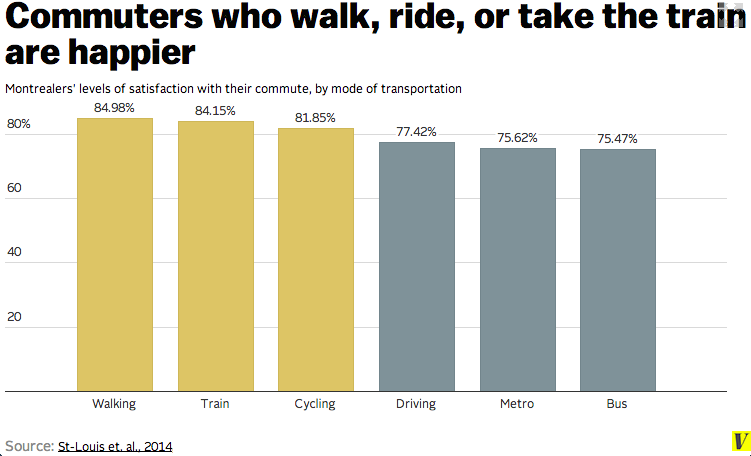Here's How Much More Cars Cost Than Bikes

By:
Each form of transportation has its downsides. The subway can be late, crowded, and full of unpleasant smells, cyclists have to fight for road space, and car maintenance and gas are pricey. However, four-wheel vehicles appear to have the greatest number of pitfalls. A new study from Sweden's Lund University found that cars are six times more expensive than bicycles, not just for the individual but for society at large.
The study.
Lund University's Stefan Gössling and University of Queensland's Andy S. Choi conducted the study to determine whether the Copenhagen Municipality needs a new cycling infrastructure system. After looking at the vehicular cost on society with regards to congestion, health, road damage, noise, pollution, travel route, and climate change, the researchers found that cars have a much higher economic impact on society than bikes.
"The cost-benefit analysis in Copenhagen shows that investments in cycling infrastructure and bike-friendly policies are economically sustainable and give high returns," Gössling said in a release.
Other benefits of cycling.
While the study done by Sweden's Lund University was specific to Copenhagen's infrastructure needs, different studies have delved into other benefits of not commuting by car. A 2014 Canadian study found that commuters who walk, use a train, or bike to the office reported higher levels of satisfaction than those who drive -- at least if one or both of these are their preferred methods of transportation to work.
 Vox - vox.com
Vox - vox.com
The researchers found that the journey itself can enhance the commute process, perhaps explaining why getting some exercise on the way to work brings people more happiness than merely sitting in a car.
"Perceptions that the commute has value other than arriving at a destination significantly increases satisfaction for all modes," the report reads.
The physical health perks of biking to work.
In addition to the mental benefits, walking or cycling to work can also have a positive impact on a person's physical health. Last year, a British paper found that those with active methods of transportation to work have a lower Body Mass Index (BMI) and percentage of body fat than those who use private transit. A BMI of 30 or higher means someone is obese, and BMI is determined by a person's weight in relation to his/her height, "specifically the adult’s weight in kilograms divided by the square of his or her height in meters," according to the Centers for Disease Control and Prevention (CDC).
The downside to biking.
Though commuting via bike has its perks, it also comes with its own set of challenges -- at least in the United States. According to the CDC, cyclists are at a higher risk of crash-related injuries or death than those in motor vehicles. In 2010, nearly 800 cyclists in America were killed and more than 500,000 had to be treated for emergency injuries. Biking dangers have prompted some American cities like Newport Beach to approve $22 million for biking infrastructure and education.
